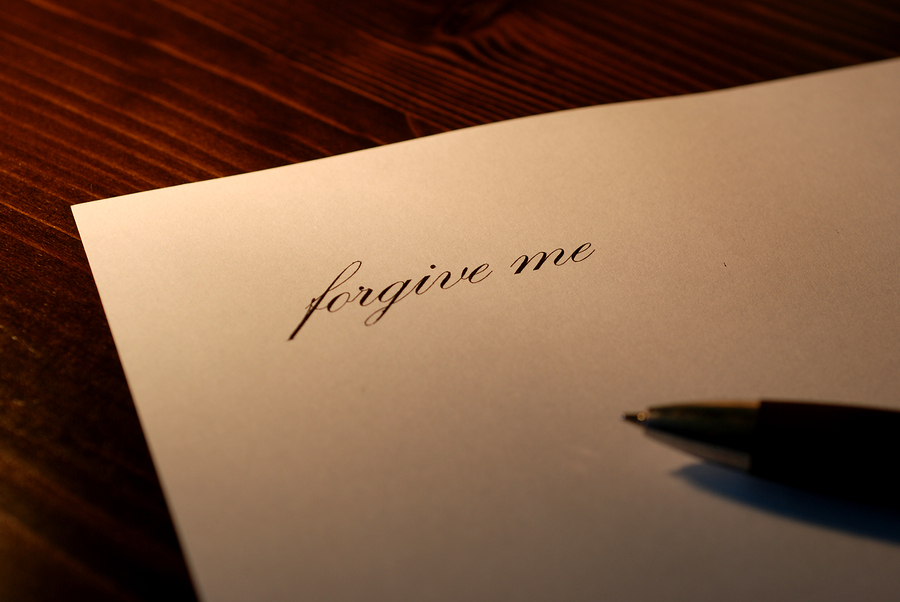
About the author : Antwuan Malone
Antwuan Malone is a Ministry Director at ELEVATE Young Adult Ministry (elevateministry.net) where empowers young adults toward Christian leadership. He is passionate about seeing young adults take their place in church history by drawing near enough to God to hear his call on their life, and courageously living in obedience to that call.
Does God Owe Us An Apology?
I realize it’s an audacious question to ask. I also realize it’s an easy question to answer.
When Job questioned God, a voice boomed to him from within a storm asking, “Where were you when I laid the Earth’s foundations? Who marked off it’s dimensions, surely you know!” Geez, who knew God was so sarcastic. The whole breathtaking scene is accounted for in Job 38. Check it out. Combine that with the passage in Daniel 4 and you might get the idea you aren’t suppose to ask any questions at all.
And yet…
We look outside and we see so much pain, devastation, sorrow, loss, and suffering of “innocent” people, and we can’t help but wonder. Who is this God, really? What does he want from us? And more important for this discussion, what should we want from him?
Millions of people the world over are struggling with the tension formed from the “loving, omnipotent, omniscient God” and the realities of the consequences of Evil and sin. These days, the tensions are certainly heating up. The inability to reconcile these opposite ideas has led to people walking away from God entirely, with flustered hands and heavy hearts. The result, one of the largest atheists and humanists movements in American History.
Oops. God’s Bad.
It seems the whole problem of evil (reconciling a loving and capable God who is said to be in control, with the devastation and evil in the world) begins in Eden. Why, oh why, did God ever give Adam and Eve a prohibition? Why give them a chance to sin at all? Why give Satan any room to operate?
Didn’t he know all this crazy stuff would happen? And if so, why didn’t he do something about it? Or better, why didn’t he prevent it altogether.
Looking back over history, it would be easy to think God made a mistake in the garden with Adam and Eve. With the overwhelming presence of evil and suffering in the world, it’s not hard to imagine God somewhere in heaven, pacing back and forth, wondering how he’s going to fix this mess. I can imagine a figure periodically sitting on his throne face in his hand, regretting he ever made any of us in the first place.
But setting God aside for a moment, what are we to really think?
In any other scenario, a creation that falls into such a broken state as the whole of humanity and the creative order would indict its creator. In the workplace, such a creator would be fired, and his creation tossed into the trash heap.
When we consider that God’s creation seems headed for imminent destruction, that life is surrounded by the tyranny of death and sin, and that God has given us desires for harmony, and a Moral Compass by which to judge our surroundings, it’s a wonder we aren’t all spiraling in hopeless despair. At what point do we begin to hold God accountable for his creation? At what point do we look into the heavens and demand an apology?
Is It Worth It?
This is the way our friends feel. Those who are struggling with the effects of sin firsthand. Those who struggle with loving a God who allows sin to take a loved one’s life, or allows the tyranny of evil men to reign. These are the questions lingering in the minds of the compassionate people who hate to see millions of lives lost to natural disasters and disease.
Is God incompetent? Is he apathetic? Or is all of this apart of some plan or purpose? And if so, is the end even worth it?
The short answer to the question of whether it’s worth it comes in a four letter word. Love. The slightly longer answer comes in eight letters. Free Will. An even longer explanation comes at the expense of many pages of ink. Two books that cover the topic impressively are Plan B (less heady) and God-Forsaken (philosophical and scientific-ish).
I certainly won’t answer these very heavy questions in this little blog. But I would life us to consider a few things. Like, why God made us.
As Christians, we believe the Bible teaches that Man was made for relationship with God. If you agree, then one starting place is to ask, “What is necessary for such a relationship?” Or better, for our conversation, “Could God have created us for relationship without allowing evil?”
That’s one to chew on. It seems to me, the only way to have love is to be in danger of losing it. If love was a constant, like the law of gravity, then it wouldn’t be love at all. And if we were subject to that law, we would be no more responsible for our actions than a tree is responsible for falling on the head of an innocent bystander. We could take no credit for loving God, because we would have no choice in the matter.
I’m known for saying to young couples that “you don’t know if you love someone until they’ve given you reason not to, and you choose to love them anyway.” Love requires testing. It requires an alternative. That alternative is sin, and all its consequences. Which really changes our question? If God owes us an apology for devastation and sin, then he must also owes us an apology for allowing us to truly love. Can you imagine a world without love? Is a world without love worse than a world with it?
From a Christian standpoint, that’s what the conversation eventually comes to. Is love worth the pain, or would we be better off without love and pain?
I’m curious, what do you think?




